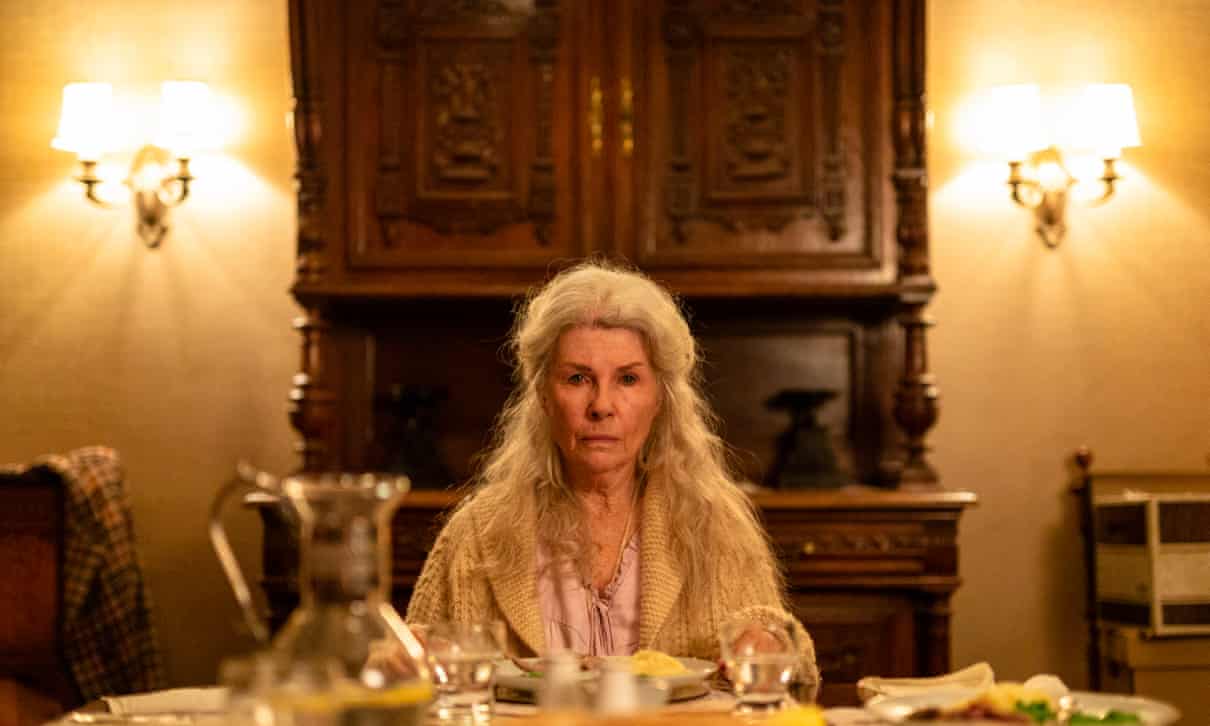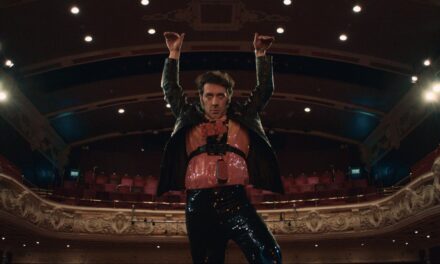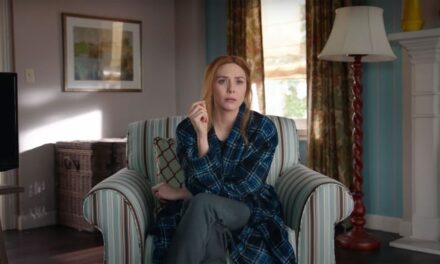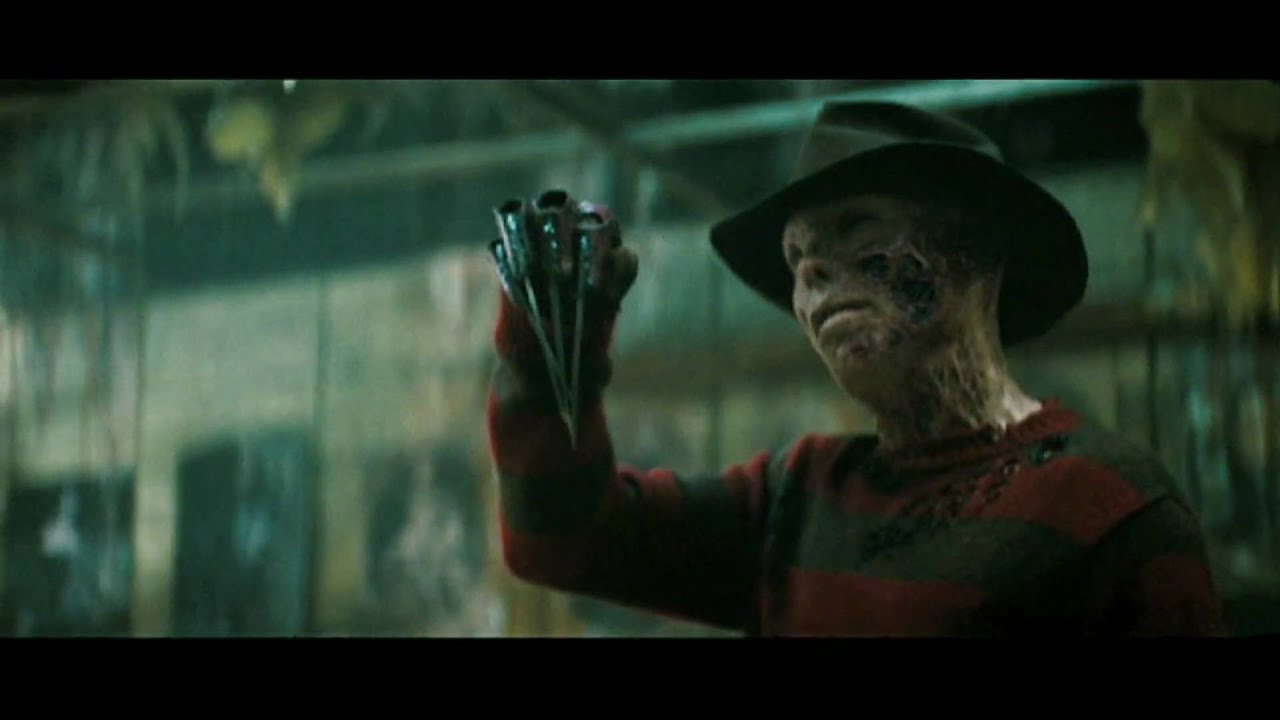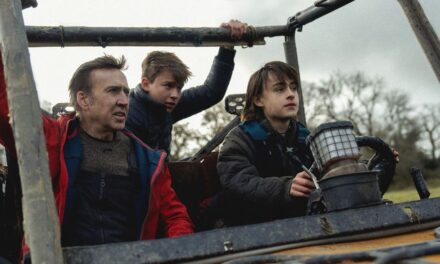When you are younger, you tend to look at parents and grandparents as a forever pillar. Things such as age, diseases, and mortality aren’t as big as worries unless you, unfortunately, see them firsthand. Getting older comes with a broader worldview – with that, seeing the constraints of time and the effects on the human body. Relic puts this notion front and center. Sometimes, the most horrific things aren’t the boogeyman under the bed or ghosts – it’s that father time ultimately has a debt to be paid for all of us. It’s frightening both for the people who experience something like dementia and for loved ones who have to witness the person they once knew wither away.
Director Natalie Erika James lays the storytelling foundation on bread crumbs. We are introduced to Kay (Emily Mortimer) and Sam (Bella Heathcote); mother and daughter who hear of their mother/grandmother Edna (Robyn Nevin) has been missing for a few days. Once they get to her house, things are disheveled and piled up. The house itself seems to be a living, breathing entity – complete with random knocks, aches, and random
Things are not right even when Kay and Sam discuss the last time Kay has spoken to her mother. She spoke of something being after her and at first, Kay flippantly didn’t think anything of it. “Oh, you know she’s forgetful.” Think about all the cues of failing health that is missed because we tend to engrain them in someone’s personality. One day, Edna shows up to the house and doesn’t miss a beat. She makes tea and greets her family as if nothing happened.
The movie starts to take a turn into a tunnel of sadness and disorientation. Edna has an inherent fear of something coming for her. In the dark spaces of hallways, some shadows materialize throughout the house. At first glance, you may chalk this up to this amounting to a haunting or a malevolent presence. What is happening is a mind collapsing within itself and the inevitability of a bloodline.
Characters in Relic utilize a lot of exposition to fill in the blanks – much to the movie’s benefit. The co-writing team James and Christian White introduce things like objects or dream sequences just to get you curious. Then, through conversations – the movie slowly peels the curtain back to reveal what’s happening. At the beginning of the film, wide shots are used to show the vastness of where Edna lives. As you get further along, the camera gets tighter. Much of the environment gets darker and feels like it’s starting to cave in on itself. The cinematography of Charlie Sarroff displays a lot of the conversation that happens with Edna in mirrors. Often, you get Edna’s mirror reflection while Sam or Kay is in our point of view.
A lot of the drama and suspense hinges on performances and they all deliver. Mortimer, Heathcote, and Nevin feed off of each other with both verbal and non-verbal cues to drive the progressive tension. Your heart breaks for Edna as she loses the synapses that made her whole. There’s a point in the film where Edna is talking to Kay in a field and states, “I’m losing everything.” From that point forward, Edna looks upon her with a glassy stare and no recollection of who she is.
Relic‘s story came about from James’ experiences with her grandmother and her battle with Alzheimer’s. It’s the combination of these personal moments and abstract, metaphoric imagery where Relic finds its impacts. Three generations simultaneously experience a realization of things being passed on – both wanted and unwanted – in isolation. That’s where the real horror lies – that the body you rely on can suddenly betray you.
The ending will surely divide people into two camps. Many will appreciate the last frames as a haunting family picture. Others may not like that it summarizes the overall theme that the movie intelligently parses out. All things considered, Relic is a strong directorial debut for James that pushes horror into places outside of machetes and bladed gloves.

